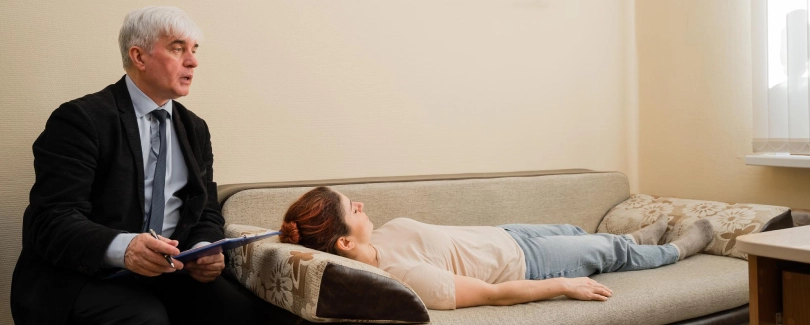Mental health in Texas presents a complex and urgent public health challenge. Even though this is the third largest county in the prevalence of mental illness, Texas ranks last in access to mental health services among all states and the District. This contrast highlights critical issues, such as mental conditions are widespread, and the infrastructure and resources for them are severely lacking. The results of this contrast are deep and also affect diverse populations across the state, from the homeless to college students and from rural communities to urban centers.
The Prevalence And Impact Of Mental Health Conditions In Texas
Texas’s high prevalence of mental health illness is a cause for concern for mental health practitioners and especially psychiatrists. Studies show that nearly 45% of the homeless population in Texas suffers from mental illness. The statistics reflect the broader mental health crisis in the state.
The majority of mental health crises for college students are also alarming, with over half of Texas college students in fair or poor mental health during the previous years, especially during COVID-19. Undergraduate students, as compared to graduate students, particularly show high rates of mental health issues. These results highlight the vulnerability of young adults and the need for targeted mental health interventions.
The impact of mental health conditions extends beyond individual suffering. Mental illness contributes to homelessness, unemployment, and family instability, which creates a cycle that is difficult to break without adequate support systems. The COVID-19 pandemic worsened these issues, increased anxiety, depression, and psychological distress among Texans. The pandemic also disrupted access to mental health services, especially for students who lost access to on-campus counselling and recreational facilities that mitigate mental health risks.
Barriers To Mental Health Care Access
There are multiple obstacles to access to mental health services in Texas. The primary obstacle is the state’s high uninsured rate around 21.5% of adults with mental illness lacking insurance. This rate is nearly double the national average, which limits the ability of individuals to seek and receive necessary mental health care.

Another barrier is the cost of mental health services. Many people have reported cost as a major obstacle to accessing care. The average cost of mental health care in Texas exceeds $1,600 per year, which places a heavy financial burden on those who are seeking treatment.
Disparities In Mental Health Care
Disparities in mental health care access are clear across various demographics in Texas. Women are slightly more likely to find therapy than men, and young adults from 26-34, which makes them the largest group that needs mental health support.
Older adults 65+ are less likely to seek mental health services. Further, 80% of Texas counties are specified as mental health professionals, which further deepens the differences in access to mental health care.
This lacks more in rural areas where the nearest provider can be hours away. This even contributes to Texas’s low ranking in access to mental health care and highlights the need for innovative solutions to expand the mental health workforce and improve service delivery.
Initiatives And Efforts To Improve Mental Health Services
Despite these challenges, Texas has made some progress in mental health care access for people. The state has increased funding for mental health counseling services every legislative session since 2013. Programs such as powerful community treatment have been successful in reducing costly treatments, hospitalizations, and emergency room visits for those with mental illness. The mental health treatment centers in Texas have an access initiative that focuses on improving access to mental health services in rural communities. This is so by collaborating with local mental health authorities to develop regional plans according to the person’s needs.
Moreover, there are calls for more resources at the county level to address the mental health crisis. Efforts are underway to rebuild state hospitals and expand mental health facilities, but the pace of progress is slow compared to the growing need.
The Role Of Psychiatric Help In Support Of Mental Health Solutions
Psychiatric help is essential to reduce the gap between mental health needs and available care. Psychiatric services encompass a range of treatment settings, including medical expertise in diagnosing, treating, and preventing mental health disorders. Psychiatrists, like medical doctors, can prescribe medication, offer psychotherapy, and reduce the biological aspects of mental health. They work with patients to develop comprehensive treatment plans. Their role is necessary to navigate complex cases, manage crises, and ensure compliance with treatment, which ultimately promotes long-term well-being and recovery.

They accurately diagnose the patients’ mental state, like depression, anxiety, bipolar disorder, and schizophrenia. They can prescribe and manage medications to make them effective and safe for treatments, according to the patient’s needs.
Other than that, mental health psychiatrists help to give treatment like psychotherapy, with the use of various techniques to help patients manage emotions, develop coping strategies, and address underlying issues.
Psychological Theories And Practices In Mental Health Treatment
Psychological theories and practices are used in mental health treatment in Texas. One key finding is the significant role of Cognitive Behavioral Therapy (CBT) in mental health treatment. This therapy is widely used to address various mental health issues like depression, anxiety, and substance use disorder. This therapy focuses on reducing symptoms of mental illness and improving the ability to perform activities of daily life. It is often used in an individualized plan to help patients build mental health skills and manage daily stressors.
Behavioral therapy, such as exposure therapy, aims to adjust maladaptive actions by changing learned responses. Another therapy is humanistic therapy, which is person-centered therapy, and focuses on creating a supportive and accepting environment for clients to explore their feelings and potential.
Solid Psychiatry provides services for all mental health care and offers personalized support. We provide a safe environment, even in the comfort of your own home, through telehealth, where healing is possible and hope is restored. Our mission is to provide hope for mentally disordered patients in the USA. Call us and book an appointment.
